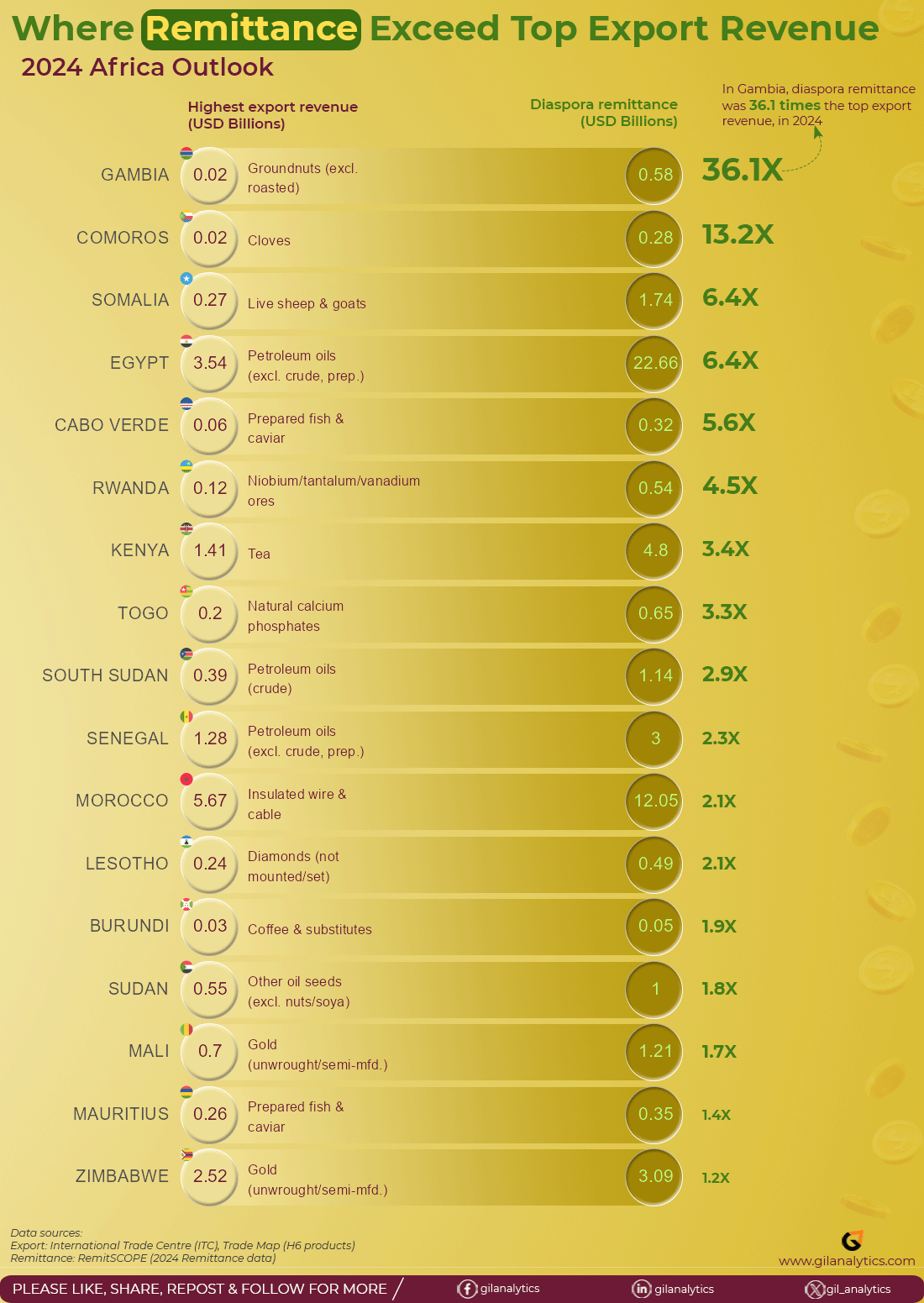The Surprising Truth Behind African Economies
For many years, the economic stories of African nations have been told through the lens of their primary exports – from petroleum and gold to tea and spices. However, new data is emerging that tells a different, more nuanced story. In certain countries, remittances – money sent home by migrant workers – play a larger role in the economy than the revenue generated from their top exports.
In 2024, Africa received over $95 billion in remittances. This trend highlights the critical importance of diaspora contributions to economic stability in nations across Africa. Below, we explore this phenomenon, focusing on countries where remittance inflows surpassed the revenue of their leading export products in 2024, offering insights into their economic dynamics.
Key Findings: Remittances vs. Top Exports
Based on recent data, several countries rely more heavily on remittances than on their top export revenue. This trend is particularly pronounced in smaller economies or those with significant migrant populations. Here’s a look at some standout examples in 2024:
- Gambia: Remittances ($575.8M) dwarf the revenue from groundnuts ($15.9M), the country’s top export, by a factor of 36.1. This highlights the vital role of Gambian diaspora in sustaining the economy.
- Comoros: Cloves, the leading export, generate $21.4M, while remittances ($282.4M) are 13.2 times higher, underscoring the reliance on overseas workers.
- Somalia: With live sheep and goats as the top export ($269.9M), remittances ($1.73B) are 6.4 times greater, reflecting the economic weight of migrant contributions.
- Egypt: Petroleum oils and related products earn $3.54B, but remittances ($22.66B) are 6.4 times higher, showcasing the massive scale of Egypt’s diaspora economy.
- Cabo Verde: Prepared fish exports bring in $57.6M, while remittances ($324M) are 5.6 times larger, a critical factor for this island nation.
- Rwanda, Kenya, Togo, and others: These countries also show remittances exceeding top export revenues, with ratios ranging from 1.2 (Zimbabwe) to 4.5 (Rwanda), driven by diverse exports like tea, gold, and phosphates.
Why It Matters
- Economic resilience – Remittances are often more stable than commodity prices, providing households with a reliable lifeline.
- Diversification of foreign earnings – Countries overly reliant on single commodities gain balance through diaspora inflows.
- Policy implications – Governments can benefit from reducing transaction costs, formalizing remittance channels, and creating investment opportunities for the diaspora.
Takeaway
Across Africa, remittances are not just a safety net but an economic powerhouse, often surpassing the revenue from key exports. For policymakers, strengthening diaspora engagement and remittance systems could be as impactful as boosting traditional export sectors.
Data sources
- Remittance data from RemitScope
- Exports data from Trademap.org
